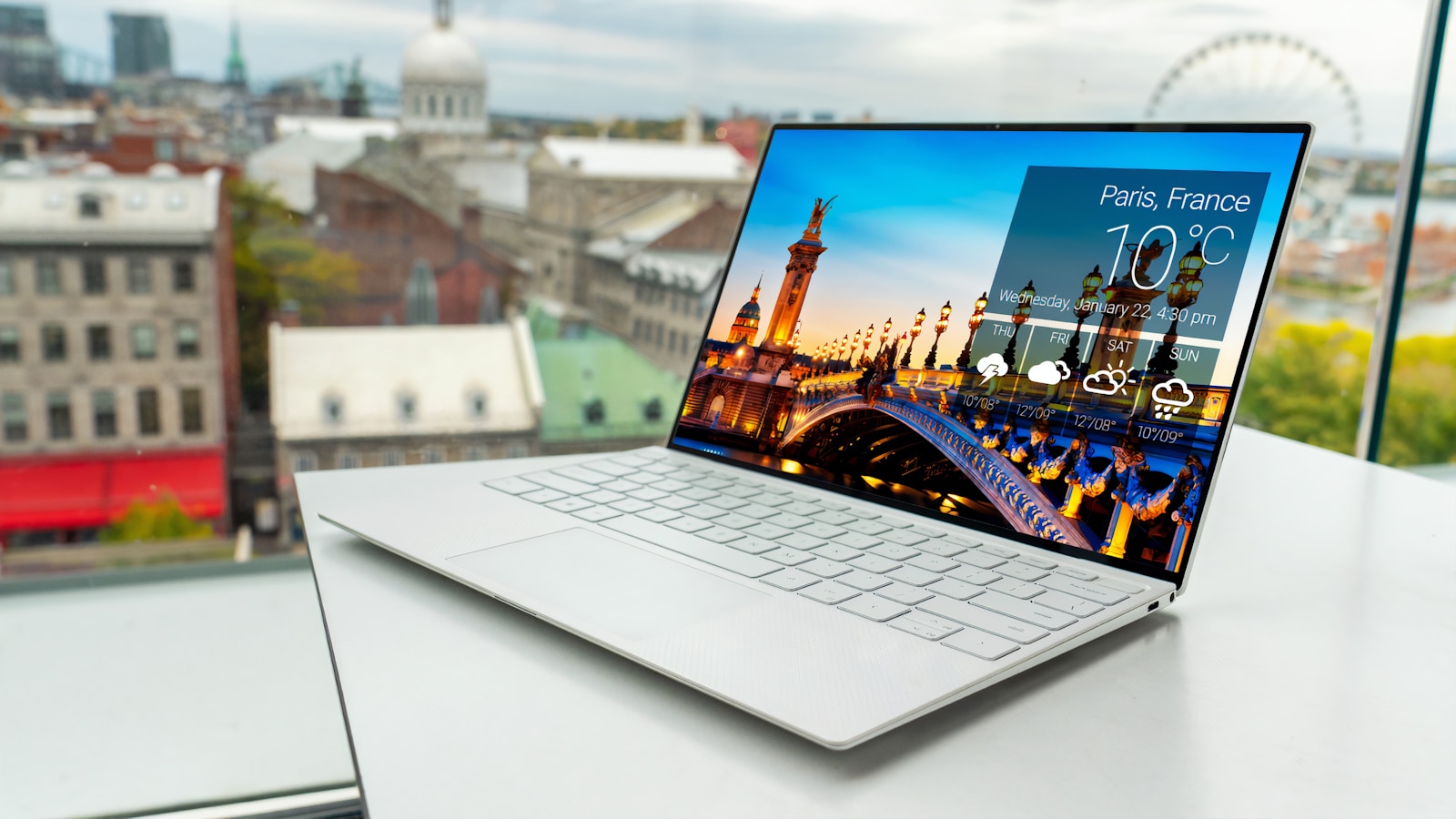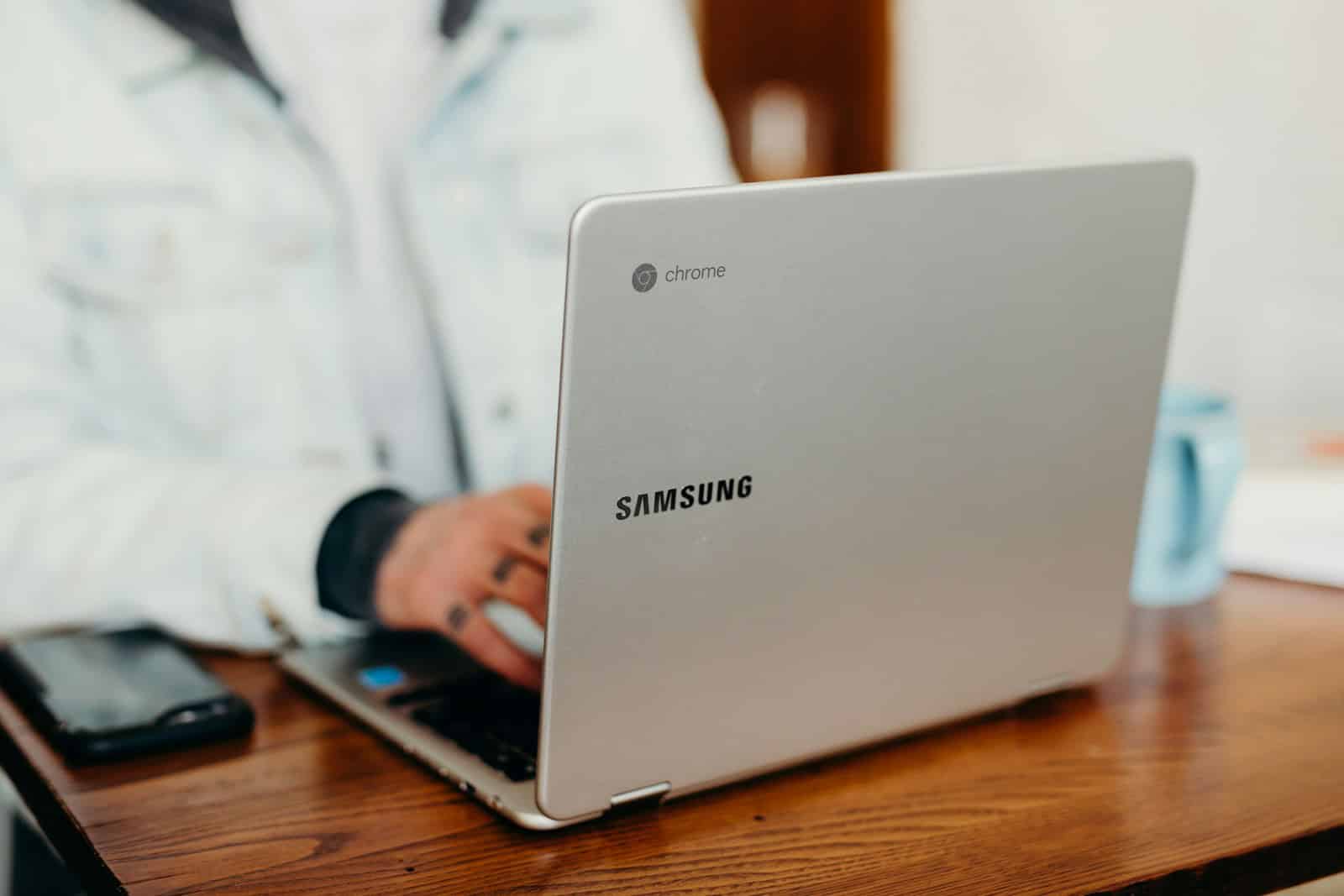When it comes to selecting the perfect computing device, the decision often boils down to two popular options: laptops and Chromebooks. While they may appear similar at first glance, each serves different purposes, catering to distinct user needs. Understanding their differences is key to making an informed decision.
What is a Laptop?

A laptop is a portable personal computer running full-fledged operating systems like Windows, macOS, or Linux. Designed for versatility, laptops support a wide range of software, from productivity suites to complex design tools and heavy-duty games.
Key Features:
- Runs traditional operating systems (Windows/macOS/Linux)
- Compatible with a vast array of software applications
- Greater storage capacity (SSD/HDD options)
- Ideal for gaming, video editing, programming, and multitasking
What is a Chromebook?

A Chromebook is a lightweight laptop alternative running Chrome OS, a streamlined operating system by Google. It’s built primarily for web-based activities and cloud computing, relying heavily on apps from the Google Play Store and services like Google Drive.
Key Features:
- Runs Chrome OS, optimized for web browsing and cloud applications
- Fast boot times and simple user interface
- Built-in virus protection and automatic updates
- Often more affordable than traditional laptops
Head-to-Head Comparison
| Feature | Laptop | Chromebook |
|---|---|---|
| Operating System | Windows/macOS/Linux | Chrome OS |
| Performance | High (varies by specs) | Optimized for web-based tasks |
| Software | Runs all traditional software | Primarily web apps & Android apps |
| Storage | Larger internal storage options | Cloud-centric with limited local storage |
| Battery Life | Varies (4-12 hours) | Generally longer (8-15 hours) |
| Security | Requires external antivirus (usually) | Built-in security with regular updates |
| Price Range | $400 – $3000+ | $200 – $700 |
| Best For | Gaming, content creation, software-heavy use | Students, casual users, web browsing |
🟢 When to Choose a Laptop:
- You need powerful software (e.g., Adobe Creative Cloud, AutoCAD).
- You’re into gaming or video editing.
- You prefer offline capabilities and local file storage.
- You want a more robust and versatile machine.
🔵 When to Choose a Chromebook:
- You primarily use Google apps (Docs, Drive, Gmail).
- You want a budget-friendly device.
- You value simplicity, speed, and security.
- You’re a student or a casual user focused on browsing, streaming, and light tasks.
Final Thoughts
Choosing between a laptop and a Chromebook ultimately depends on how you plan to use the device. If you need heavy-duty processing, offline capabilities, and wide software compatibility, a laptop is the clear winner. But if you’re looking for a budget-friendly, lightweight device primarily for web browsing, schoolwork, or casual use, a Chromebook is an excellent option.
Pro Tip: If you’re still undecided, think about your daily workflow. If 90% of your tasks happen within a web browser, a Chromebook might be all you need. But if you juggle multiple software programs or require specific applications, investing in a traditional laptop makes more sense.
Key Takeaways
- Chromebooks use Chrome OS and focus on web apps, while laptops run full operating systems
- Laptops offer more power and flexibility, but Chromebooks are often cheaper with better battery life
- Your choice depends on your computing needs and budget
Understanding Laptops and Chromebooks
Laptops and Chromebooks are portable computers with some key differences. These devices have unique features that set them apart in terms of operating systems, hardware, and overall functionality.
Core Differences Between Laptops and Chromebooks
Laptops are versatile machines that run full operating systems like Windows or macOS. They can handle a wide range of tasks and software. Chromebooks use Chrome OS, which is web-based and simpler.
Laptops work well offline and can run complex programs. Chromebooks need internet access for most tasks. They rely on web apps and cloud storage.
Laptops often cost more but offer more power and flexibility. Chromebooks are usually cheaper and focus on basic tasks like web browsing and document editing.
Operating Systems: Windows, Chrome OS, and MacOS
Windows is the most common laptop operating system. It runs many programs and works with lots of hardware. MacOS is only on Apple laptops. It’s known for being user-friendly and good for creative work.
Chrome OS is built around the Google Chrome browser. It’s fast and simple but has fewer features than Windows or macOS. Chrome OS works best with Google services and web apps.
Each system has its strengths. The choice depends on what you need to do with your computer.
Hardware Specifications: Processor, RAM, and Storage
Laptops often have stronger processors, more RAM, and bigger hard drives. This lets them run demanding software and store lots of files.
Chromebooks usually have less powerful hardware. They have smaller storage drives because they use cloud storage. Their processors and RAM are enough for web-based tasks.
Laptops come in many configurations. You can choose based on your needs. Chromebooks have fewer options but are simpler to pick.
Both types of devices can have features like touchscreens or long battery life. The right choice depends on your budget and how you plan to use the device.
Comparing Performance and Usability
Laptops and Chromebooks differ in their performance and usability. These devices have unique strengths and limits in software, apps, work tasks, and battery life.
Software and Apps Compatibility
Laptops run Windows or macOS. They work with most software and apps. Users can install programs from many sources. Chromebooks use Chrome OS. They mainly run web apps and Android apps from the Google Play Store.
Laptops handle heavy programs like Adobe Creative Suite. Chromebooks can’t run these programs. But Chromebooks work well for web-based tasks. They use Google Docs, Sheets, and Slides instead of Microsoft Office.
Some Chromebooks now support Linux apps. This adds more software options. But it’s still not as wide as what laptops offer.
Gaming, Productivity, and Creative Work
Laptops are better for serious gaming. They have stronger graphics cards and can run most PC games. Chromebooks are limited to basic web games and some Android games.
For work, laptops offer more power for complex tasks. They excel at video editing, 3D modeling, and coding. Chromebooks are good for writing, spreadsheets, and light photo editing.
Laptops support pro-level creative software. This makes them ideal for graphic design and music production. Chromebooks have some creative apps, but they’re more basic.
Battery Life and Connectivity
Chromebooks often have longer battery life than laptops. They can last 10-12 hours on a charge. Most laptops run for 6-8 hours. This makes Chromebooks great for all-day use without plugging in.
Both devices connect to Wi-Fi easily. Many also offer cellular data options for internet on the go. Chromebooks need internet for most tasks. Laptops can do more offline.
Chromebooks boot up faster than most laptops. They also update automatically in the background. This saves time and keeps the system secure with less effort from the user.







